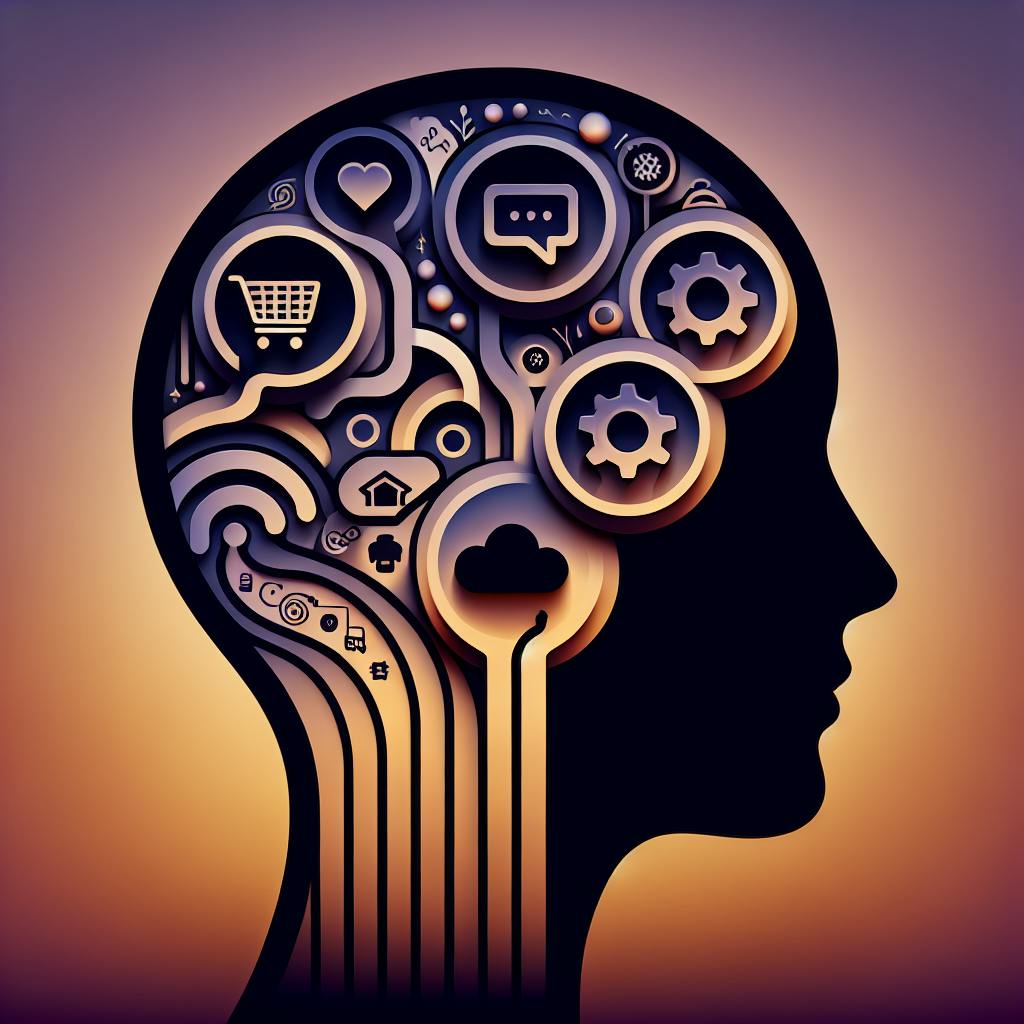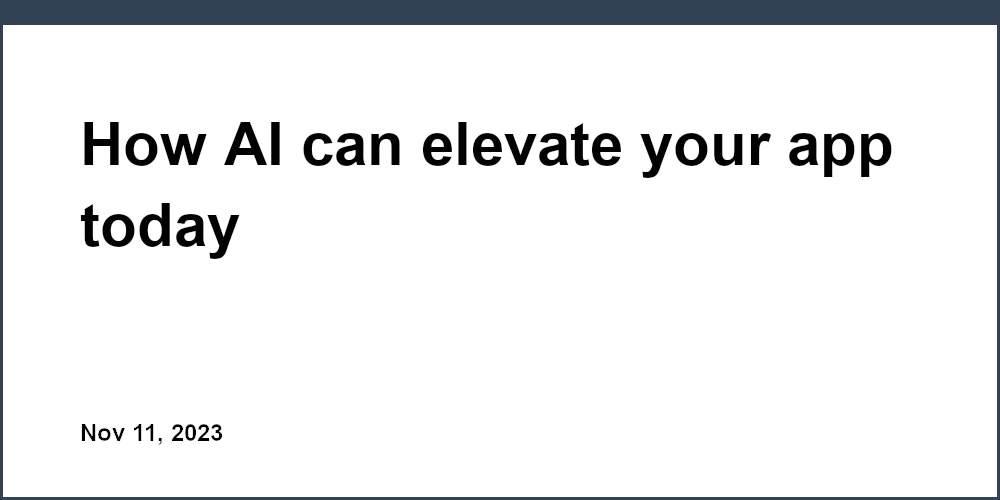The Growing Importance of Specialized AI Solutions
Artificial intelligence is rapidly transforming how businesses operate, unlocking new potential across nearly every industry. While broadly capable AI tools like ChatGPT offer some useful capabilities, customized AI solutions trained on niche datasets are enabling even greater optimization and productivity gains.
Specialized AI assistants built for specific use cases allow organizations to work smarter and faster. Whether it's automated content creation tailored for marketing campaigns, personalized recommendations to boost sales, or intelligent process automation to streamline finance workflows, custom AI is already making a major impact.
As demand grows for tailored AI solutions that can handle industry-specific data and contexts, more businesses are seeking out custom models aligned with their unique needs. The key is finding the right fit - an AI agent with training focused on enhancing capabilities for core business tasks versus general queries.
Platforms like All GPTs aim to make this discovery process easier by providing a comprehensive directory of the top custom AI tools on the market today. Their reviews and comparisons across categories offer invaluable guidance for identifying the ideal AI to meet specific business needs.
Below we'll explore the key differences between general and custom AI, the exponential growth in custom models across sectors, and how specialized solutions can optimize productivity by role.
| General AI (e.g. ChatGPT) | Custom AI | |
|---|---|---|
| Training Data | Broad datasets, Wikipedia, web pages | Niche datasets tailored to industry/use case |
| Capabilities | General knowledge queries | Specialized skills for targeted tasks |
| Precision | Approximate responses | More accurate results |
| Integration | Limited without customization | Custom-built for workflows |
| Use Cases | Conversational agent | Task automation and optimization |
The Rise of Custom AI Models Across Industries
While broad AI chatbots can be useful for general queries, they lack the specificity and precision many industries require. Organizations need AI solutions tuned for their particular use cases using niche data.
For example, financial services firms need AI trained on quantitative finance data, risk analysis, regulatory documents and more. Retailers require AI models versed in analyzing sales data to optimize inventory, pricing and recommendations. Media companies want content-focused AI optimized for generating brand-safe articles, social posts, and ad creatives.
Healthcare, manufacturing, government, legal services and more are all exploring custom AI offerings tailored to their verticals. According to projections, the global market for custom AI could reach over $30 billion by 2025.
For any business seeking an edge over the competition, specialized AI automation and insights can provide that boost by enhancing human capabilities. The time is now to take advantage of the transformative potential of custom AI across the organization.
Custom AI Use Cases and Benefits for Key Business Roles
Let's explore some of the key ways tailored AI solutions are creating major benefits across critical business functions:
Marketing
- Generate high-quality blog posts, social media captions, and ad creatives in seconds with AI content creators specialized for your brand voice and niche.
- Continuously split test and optimize landing pages and campaigns using predictive analytics models trained on past campaign data.
- Monitor customer sentiment and discussions around competitors using custom natural language processing focused on your industry terminology.
- Engage and qualify leads 24/7 using conversational AI chatbots tailored to your products and services.
- Build 360 customer profiles and make personalized recommendations to enhance engagement across channels.
Sales
- Product recommendation tools leverage data on past sales and customer attributes to suggest optimal upsell opportunities.
- Conversational AI assistants provide quick access to customer account data and make data-backed suggestions on next best actions.
- Sales forecasting algorithms analyze pipeline data, trends, and seasonality to predict revenue scenarios.
- AI sales assistants analyze interactions and surface coaching tips in real-time to boost conversion rates.
- Automated data entry and document analysis extracts key details from contracts, orders, and other sales documents.
Finance
- Budget forecasting models utilize historical spending data, growth projections, and macroeconomic trends to predict budgets.
- Invoice processing automation classifies and extracts key details from invoices, bills, and receipts with high accuracy.
- Intelligent investment management tools analyze investor profiles and risk appetites to provide personalized portfolio guidance.
- Anomaly detection algorithms continuously monitor transactions, claims, and other finance data to flag potential fraud.
- AI simulations rapidly stress test financial models and strategies against countless market scenarios and risks.
Human Resources
- Applicant tracking systems screen resumes and profiles using intelligent algorithms trained to identify optimal candidates based on required qualifications.
- Internal mobility tools match employees to new growth opportunities across departments using skills-based recommendations.
- Onboarding chatbots provide personalized guidance and support as new hires ramp up.
- Sentiment analysis tracks employee satisfaction KPIs, while tailored AI experiences boost engagement.
- Skills assessment algorithms provide managers with insights on team strengths and development opportunities to guide training.
The use cases span every function and industry. When tailored to specific business contexts, AI automation and insights can transform productivity.
Choosing the Optimal Custom AI Solution
With so many potential applications, how can you identify the ideal custom AI solutions for your organization? Here are the key factors to evaluate:
Key Criteria
- Accuracy - Ensure models are trained on high-quality, niche data sets closely matching your use case for reliable and relevant results.
- Integration - Solutions should seamlessly connect with your tech stack and workflows. API integration and no-code options maximize flexibility.
- Scalability - The platform should easily scale up or down to meet your evolving operational needs. Cloud hosting and managed services enable this.
- Support - Look for responsive 24/7 customer service and continuous model improvement via updates.
- Cost - Balance required capabilities with total cost of ownership. Calculate projected ROI based on time and efficiency gains.
- Compliance - Solutions must meet security, privacy and regulatory requirements for your industry.
- Reputation - Vet vendors thoroughly based on client reviews, case studies and renown in your niche.
Platforms like All GPTs meticulously evaluate the leading AI solutions using criteria like these. Their goal is matching businesses with the ideal tools for enhancing productivity tailored to specific use cases.
Implementing Custom AI Successfully
To maximize results, companies must follow structured best practices when deploying AI:
- Start small - Pilot the AI solution in a limited use case before expanding to additional workflows.
- Collaborate closely - Work with the vendor during setup and training to ensure optimal integration.
- Test thoroughly - Rigorously evaluate performance and accuracy before full deployment.
- Monitor closely - Track usage data, accuracy metrics, and user feedback to improve the AI.
- Focus on augmentation - Design AI to enhance human team members rather than replace roles.
- Plan employee training - Invest in reskilling workers to fully leverage the AI tools.
The Future of Custom AI Solutions
Looking ahead, specialized AI adoption will continue growing rapidly across industries, creating major opportunities while also requiring proactive risk mitigation.
Upcoming Opportunities
- Democratization of access - AI-as-a-service models make capabilities accessible for small and mid-size businesses.
- New applications - Innovative custom AI for medical diagnosis, smart cities, autonomous vehicles, agriculture, and more.
- Enhanced experiences - Combining AI, AR/VR and other emerging tech will enable immersive, hyper-personalized experiences.
Navigating the Risks
- Job losses from automation - Proactively reskill and upskill workers most impacted by AI adoption.
- Biased data and models - Ensure diverse and representative data sets. Maintain responsible AI development processes.
- Tightening regulations - Developments like the EU AI Act will bring increased standards and scrutiny to the industry. Adopt ethical practices proactively.
The future offers amazing potential, but we must develop AI with human benefit in mind.
Start Exploring Custom AI Solutions for Your Business
As this article has explored, specialized AI solutions are enabling organizations across sectors to work smarter and more efficiently by automating repetitive tasks and uncovering impactful insights.
Custom AI delivers the most value when aligned tightly with specific use cases and workflows. Companies need to evaluate options based on accuracy, integration, scalability, and other factors that determine ROI.
Platforms like All GPTs offer an invaluable starting point for discovering pre-vetted AI tools matched to your niche. Explore their directory of top custom AI solutions to begin identifying options tailored to your unique business needs. With the right approach, custom AI can drive transformative productivity gains across your organization.


